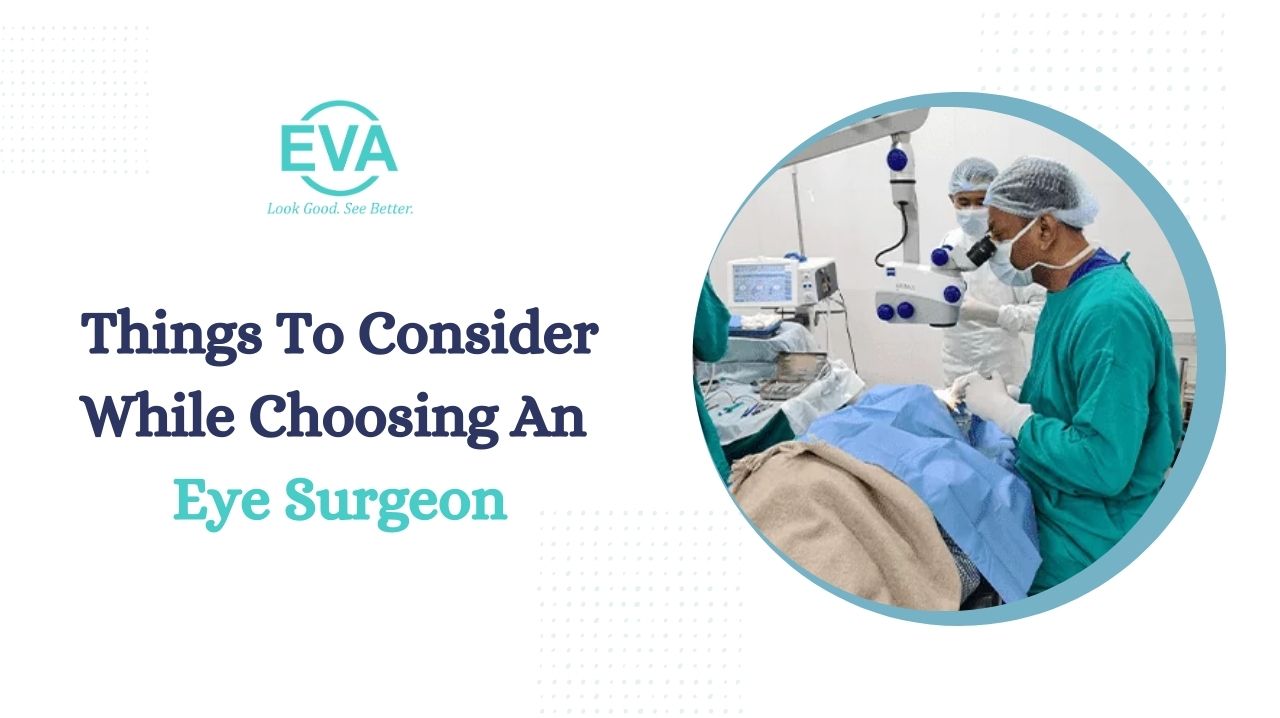Things To Consider While Choosing An Eye Surgeon

An eye surgeon, also known as an ophthalmologist, is a medical doctor who specializes in the diagnosis, treatment, and surgical management of eye conditions and diseases. They have completed extensive education and training in medical school and a residency program in ophthalmology.
Eye surgeons are trained to provide comprehensive eye care, including performing eye examinations, prescribing glasses or contact lenses, diagnosing and treating eye conditions, and performing surgical procedures on the eyes. They have expertise in various surgical techniques, including cataract surgery, corneal transplants, glaucoma surgery, retinal surgeries, and refractive surgeries like LASIK.
Factors to Consider When Choosing an Eye Specialist
Choosing the right eye surgeon is a crucial step towards ensuring a safe and successful eye surgery experience. Whether you need a procedure such as cataract surgery, LASIK surgery, or a complex retinal surgery, selecting a skilled and reputable eye surgeon is of utmost importance. In this blog, we will provide you with valuable tips to help you make an informed decision when choosing an eye surgeon in Delhi. From considering credentials and qualifications to seeking recommendations and conducting thorough research, we will cover essential factors to guide you in your search for the right eye surgeon.
Credentials and Qualifications: When selecting an eye surgeon, it is vital to verify their credentials and qualifications. Look for a surgeon who is board-certified and holds the necessary certifications in ophthalmology. This ensures that they have completed the required education, training, and examinations to practice as an eye surgeon. Additionally, consider their specialization and expertise in the specific area of eye surgery you require. Some eye specialist may have completed specialized training or fellowships in fields such as cornea, retina, or glaucoma. Their additional training can indicate a higher level of proficiency and knowledge in specific surgical techniques.
Experience and Surgical Volume: Experience plays a significant role in the success of eye surgeries. Inquire about the surgeon's experience in performing the specific procedure you need. Ask about the number of surgeries they have performed and their success rates. A surgeon with a higher volume of surgeries in your particular procedure may have honed their skills and encountered a wider range of cases, increasing their expertise. While experience alone is not the sole determining factor, it is an essential consideration when choosing an eye specialist doctor.
Referrals and Recommendations: Seeking referrals and recommendations from trusted sources can be invaluable in your search for an eye surgeon. Start by consulting your primary care physician or optometrist, as they can often recommend reputable surgeons in your area. Additionally, ask friends, family, or colleagues who have undergone eye surgery for their experiences and recommendations. Hearing firsthand accounts can provide valuable insights into the surgeon's skills, communication, and overall patient satisfaction. However, remember that each person's experience is subjective, and it is essential to gather multiple opinions and make your own informed decision.
Research and Reviews: Conduct thorough research on potential eye surgeons before making a decision. Start by visiting their websites to learn more about their background, education, and areas of specialization. Look for any certifications, affiliations with professional organizations, and awards or recognitions they have received. Reading patient reviews and testimonials can offer additional insights into the surgeon's expertise, communication, and patient outcomes. However, keep in mind that reviews should be assessed critically, considering both positive and negative feedback.
Consultation and Communication: Schedule consultations with potential eye surgeons to assess their expertise and communication style. A consultation allows you to discuss your specific needs, concerns, and expectations. Pay attention to how well the surgeon listens to you and addresses your questions and doubts. A competent eye surgeon should take the time to understand your case, explain the surgical procedure in detail, discuss potential risks and benefits, and manage your expectations. They should communicate effectively, using clear language and avoiding medical jargon, ensuring you have a thorough understanding of the procedure.
Hospital or Surgical Center Affiliations: Consider the hospital or surgical center where the eye surgeon performs surgeries. Research the facility's reputation, safety record, and available technology. A well-equipped facility with advanced technology can contribute to better surgical outcomes. Additionally, check if the surgeon has privileges at multiple reputable eye hospitals or surgical centers. This flexibility can be advantageous, allowing them to choose the most appropriate facility for your specific needs.
Conclusion: Choosing the right eye doctor is a critical step towards ensuring a safe and successful eye surgery. By considering factors such as credentials, experience, referrals, and research, you can make an informed decision. A skilled and reputable eye surgeon can provide the expertise and care needed for optimal surgical outcomes. Remember to communicate openly, ask questions, and trust your instincts when selecting an eye surgeon. By doing so, you can embark on your eye surgery journey with confidence, knowing that you have made a well-informed choice.

